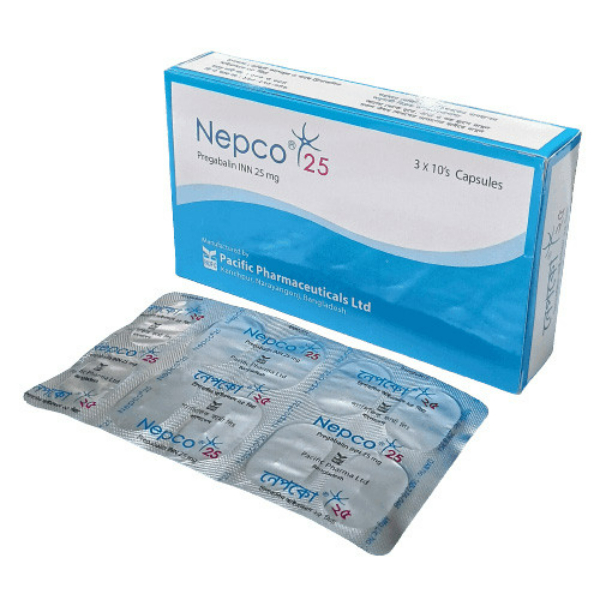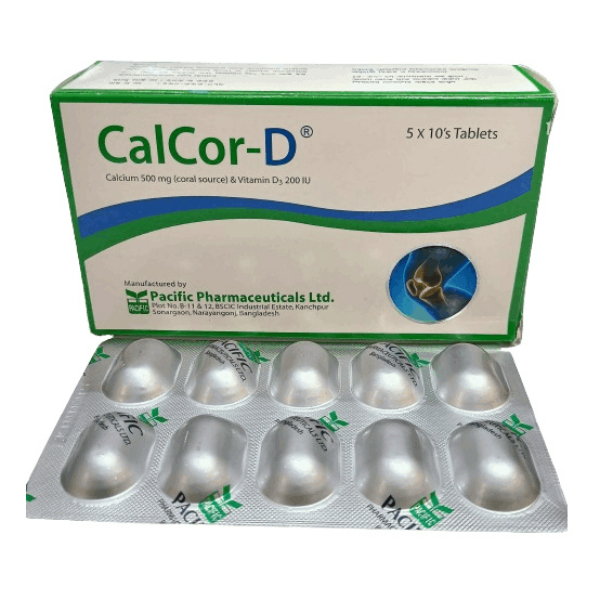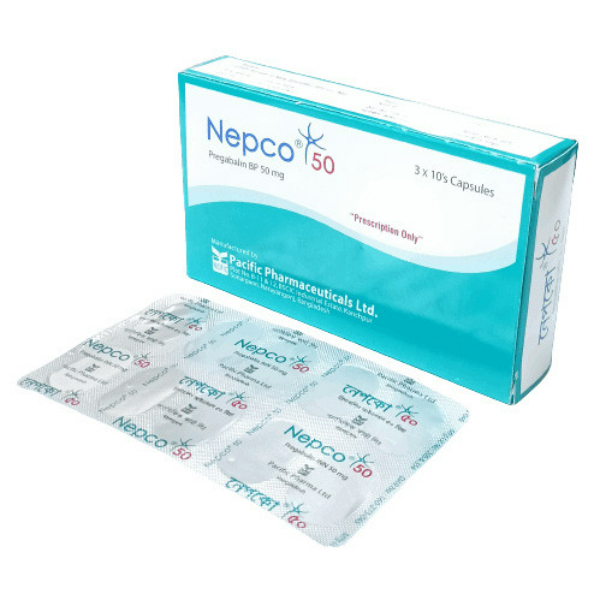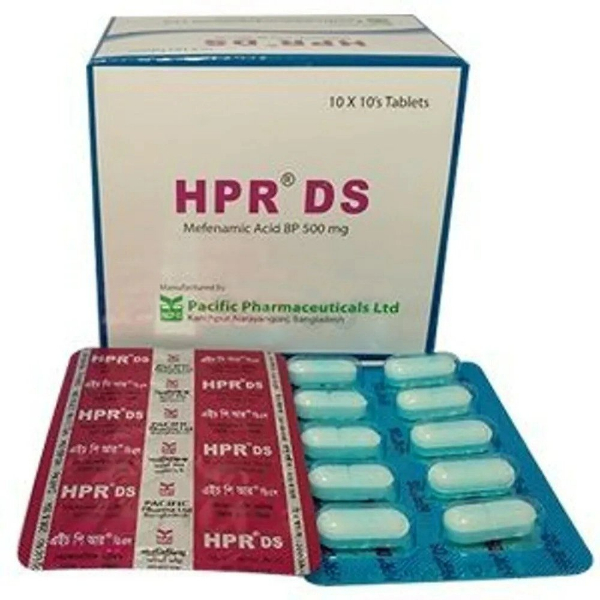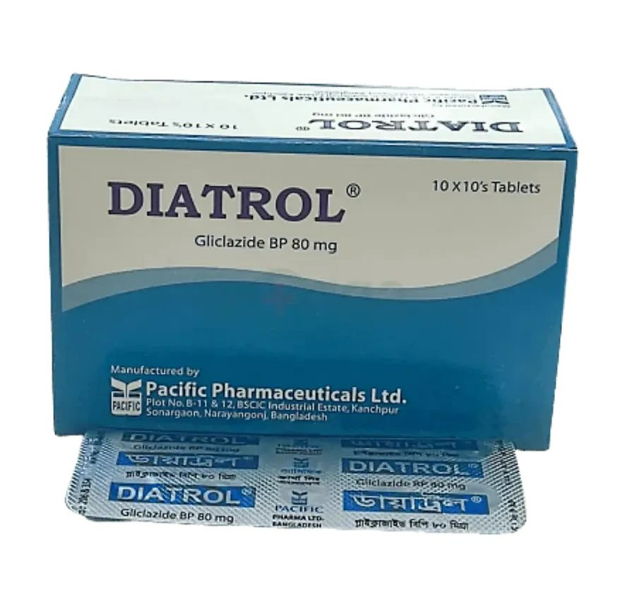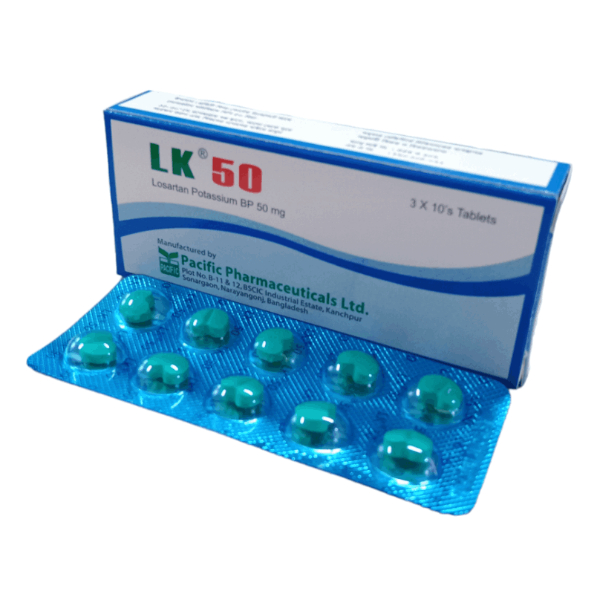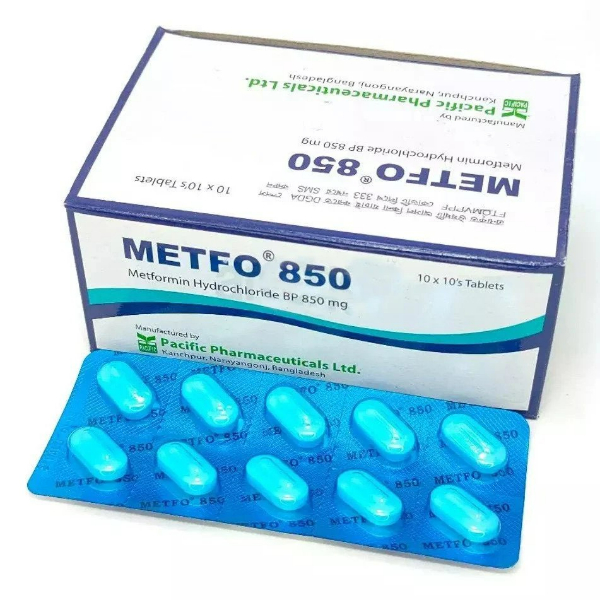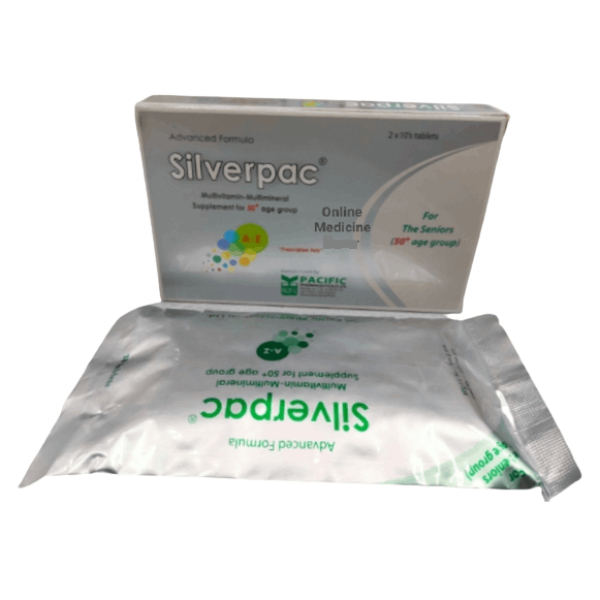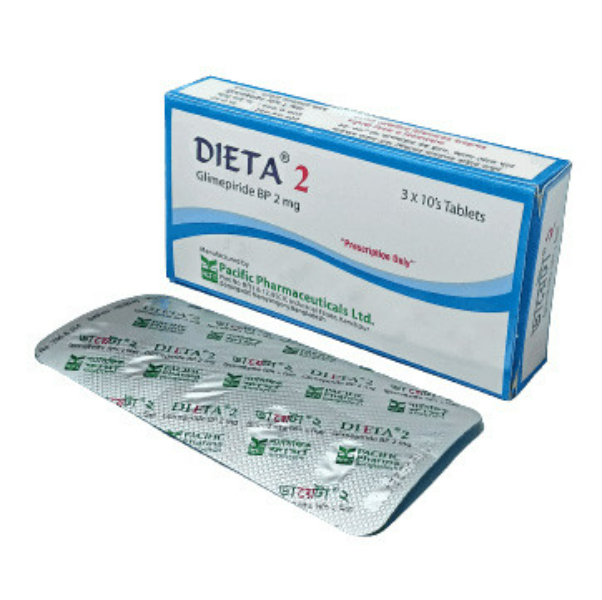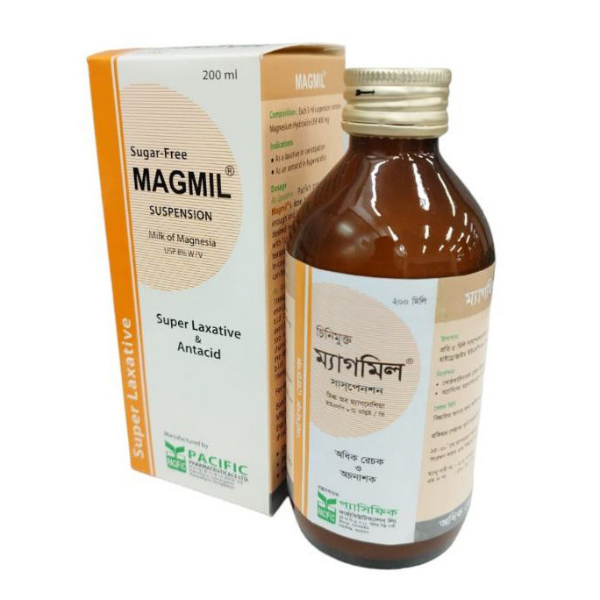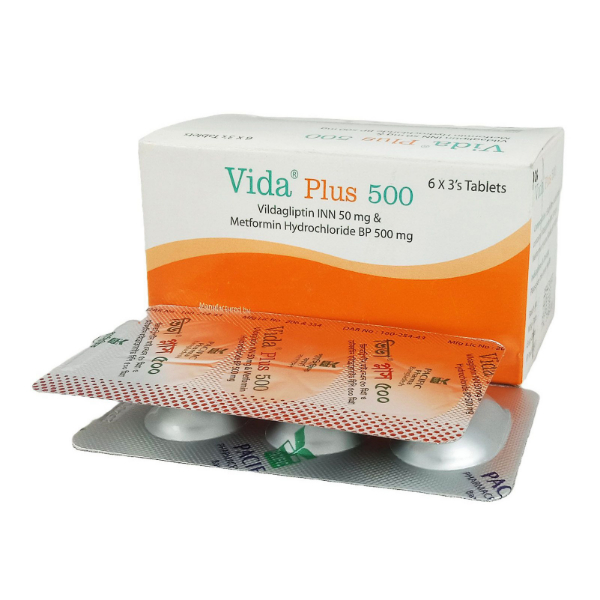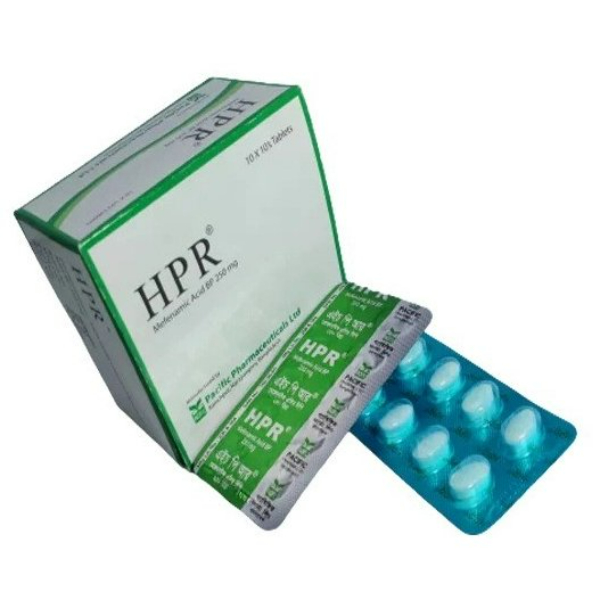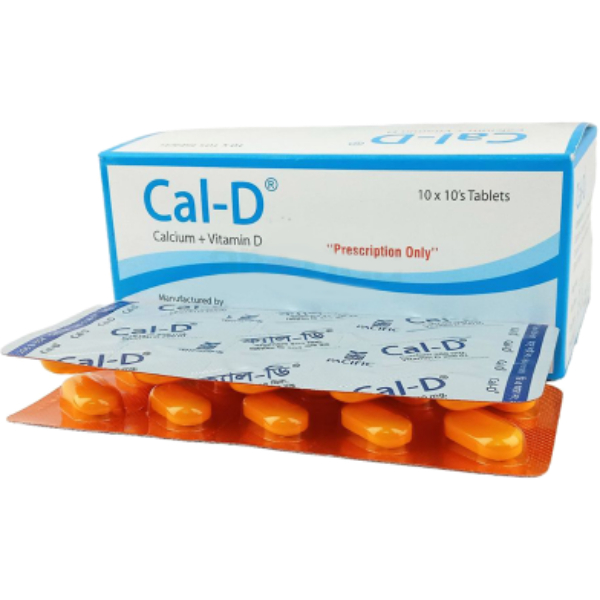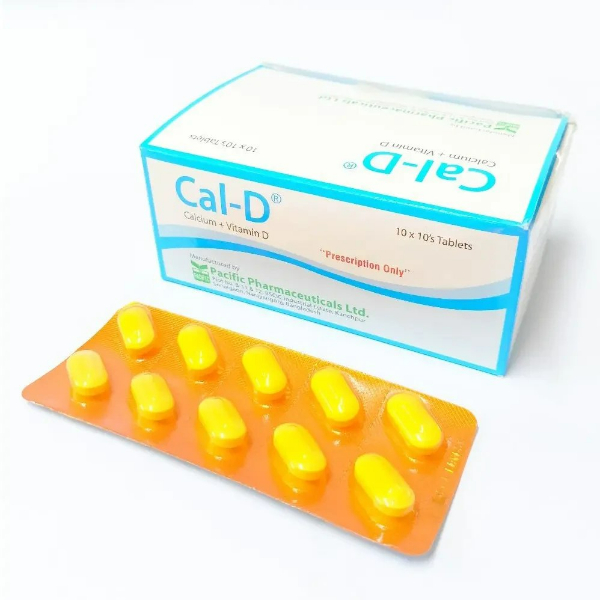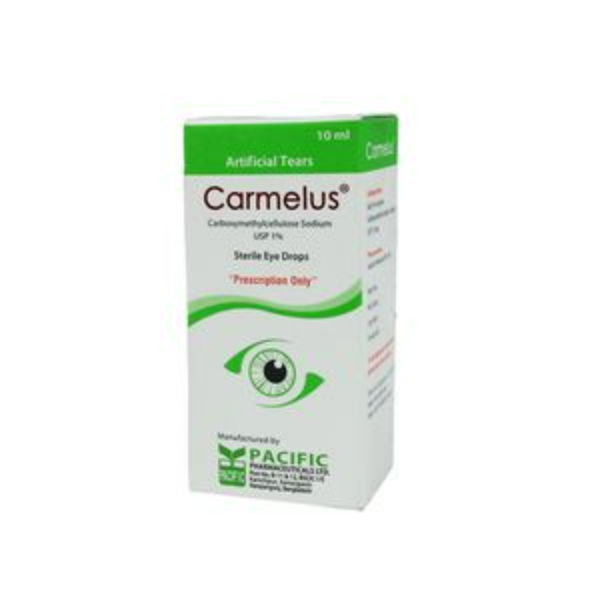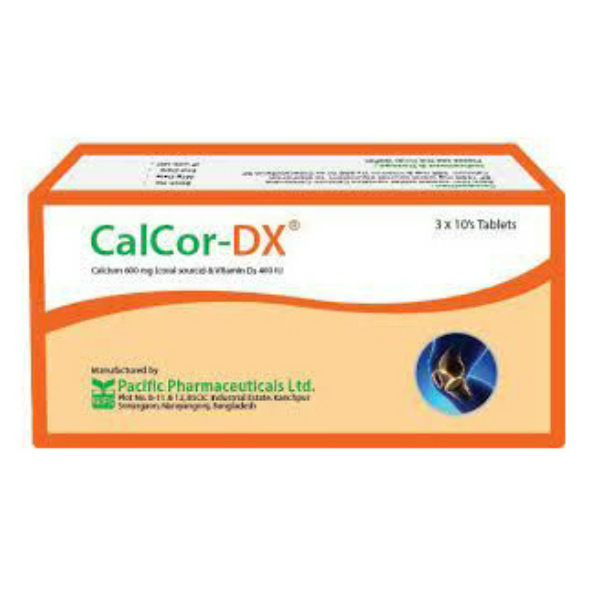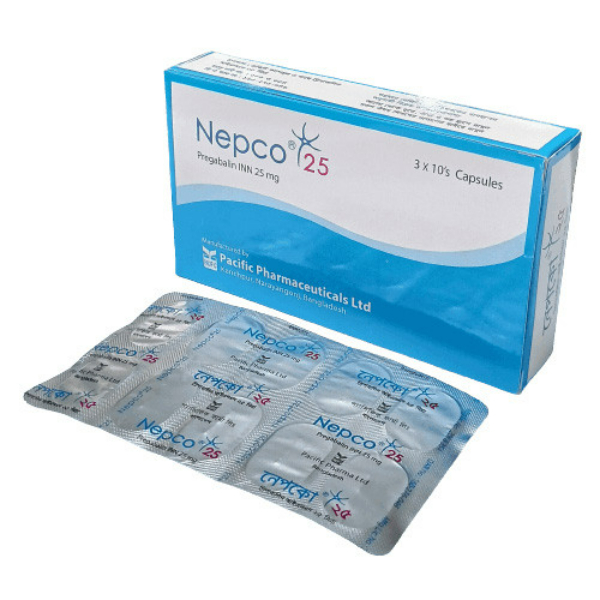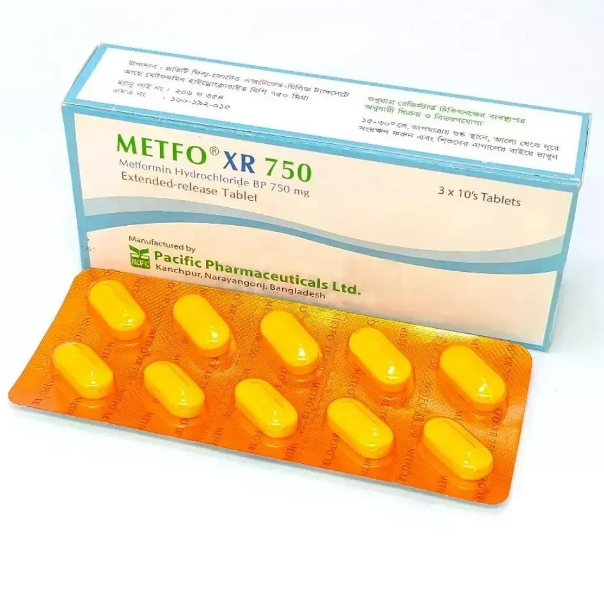Description
রেজিস্টার্ড চিকিৎসকের পরামর্শ মোতাবেক ঔষধ সেবন করুন
Indications:
-
Type 2 Diabetes Mellitus (especially in overweight patients)
-
Can be used as monotherapy or in combination with other antidiabetic agents or insulin
Pharmacology:
Metformin is a biguanide that decreases hepatic glucose production, decreases intestinal absorption of glucose, and improves insulin sensitivity by increasing peripheral glucose uptake and utilization.
Dosage & Administration:
-
Usual starting dose: 850 mg once daily with meals
-
Maximum recommended dose: 2550 mg/day in divided doses
-
Should be taken with or after meals to minimize gastrointestinal discomfort
-
Dose should be adjusted based on glycemic response
Interaction:
-
Alcohol increases the risk of lactic acidosis
-
May interact with iodine-containing contrast media
-
Concomitant use with insulin or sulfonylureas may increase hypoglycemic effect
-
Certain antihypertensive drugs and corticosteroids may affect blood sugar levels
Contraindications:
-
Renal impairment (eGFR <30 mL/min/1.73 m²)
-
Acute or chronic metabolic acidosis, including diabetic ketoacidosis
-
Hypersensitivity to metformin
-
Conditions predisposing to hypoxia (e.g., congestive heart failure)
Side Effects:
-
Common: Nausea, vomiting, diarrhea, abdominal pain, loss of appetite
-
Rare but serious: Lactic acidosis (a medical emergency)
-
Long-term use may reduce vitamin B12 levels
Pregnancy & Lactation:
-
Pregnancy: Usually insulin is preferred; metformin may be used if deemed appropriate
-
Lactation: Excreted in breast milk in small amounts; generally considered safe
Precautions & Warnings:
-
Monitor renal function regularly
-
Avoid excessive alcohol intake
-
Should be temporarily discontinued before surgery or use of contrast agents
-
Not for use in Type 1 diabetes or diabetic ketoacidosis
Therapeutic Class:
Biguanide group – Oral Antidiabetic Agent
Storage Conditions:
Store below 30°C in a cool, dry place. Protect from moisture and light. Keep out of reach of children.

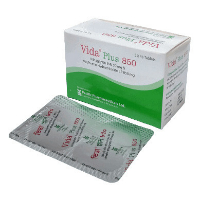

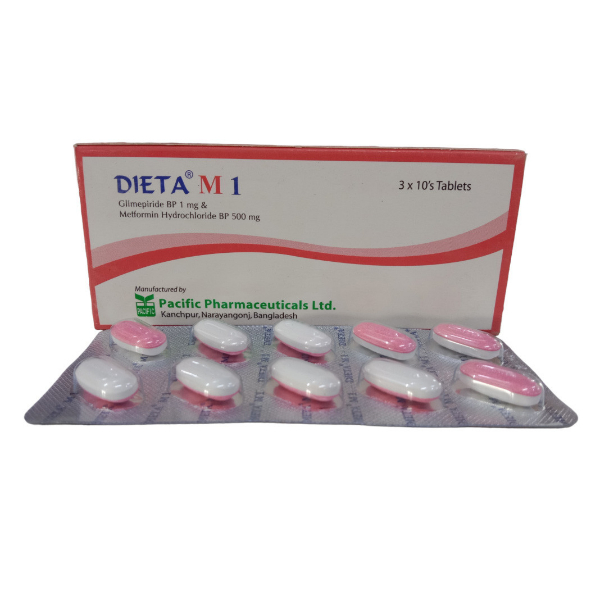
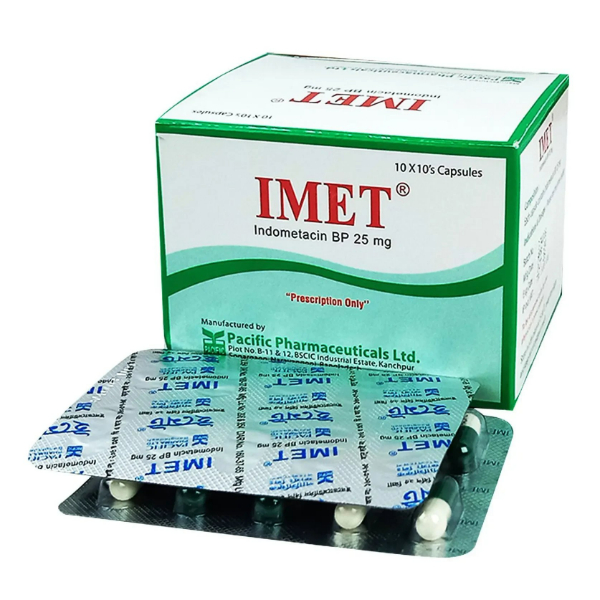
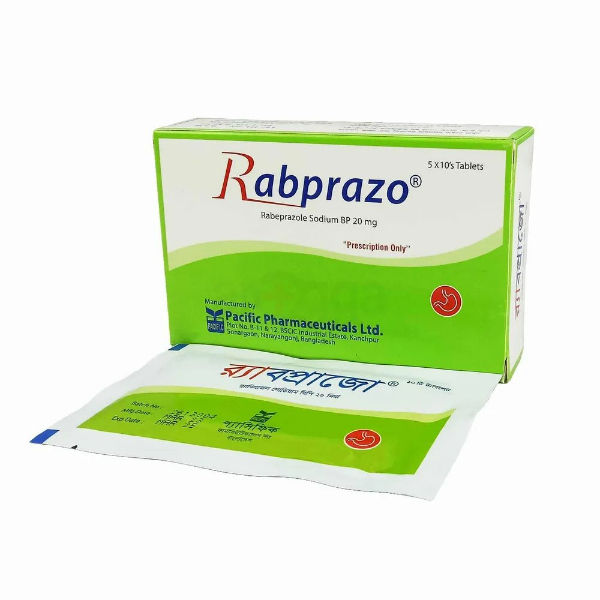

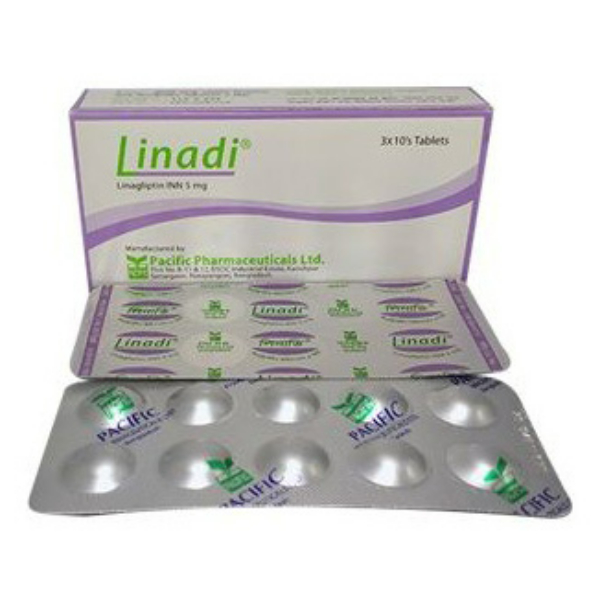
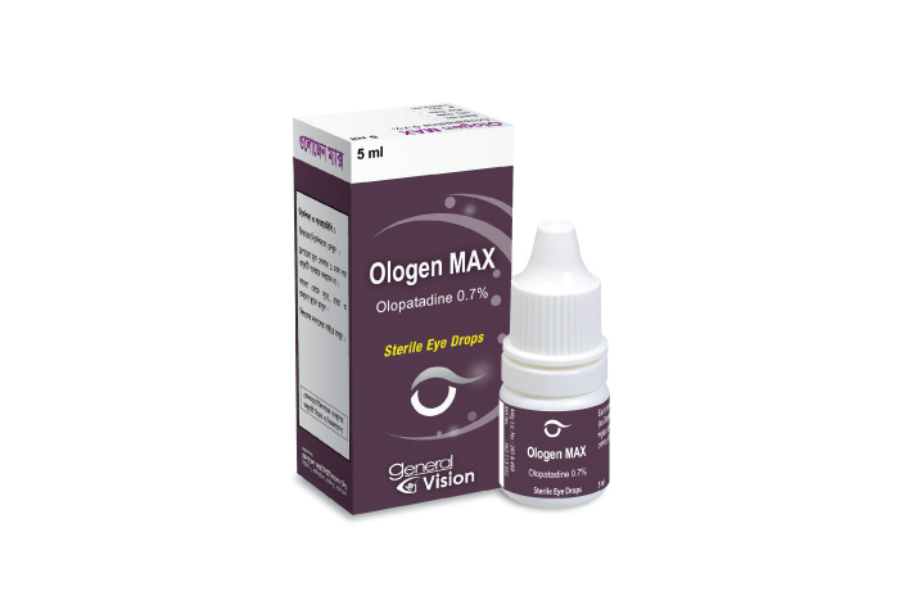



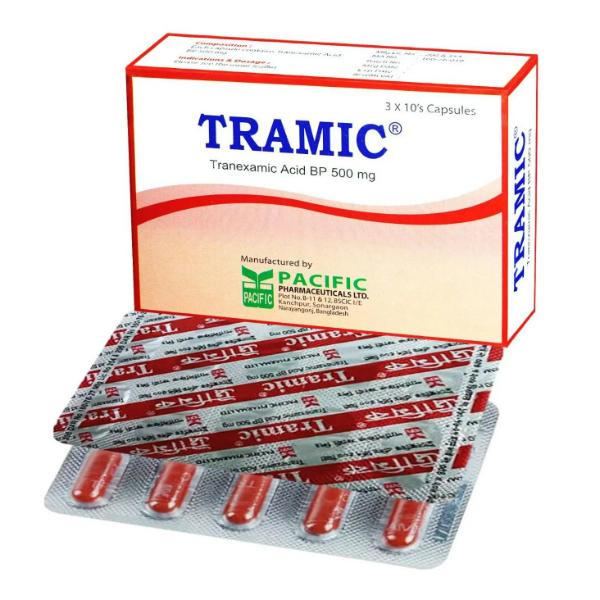
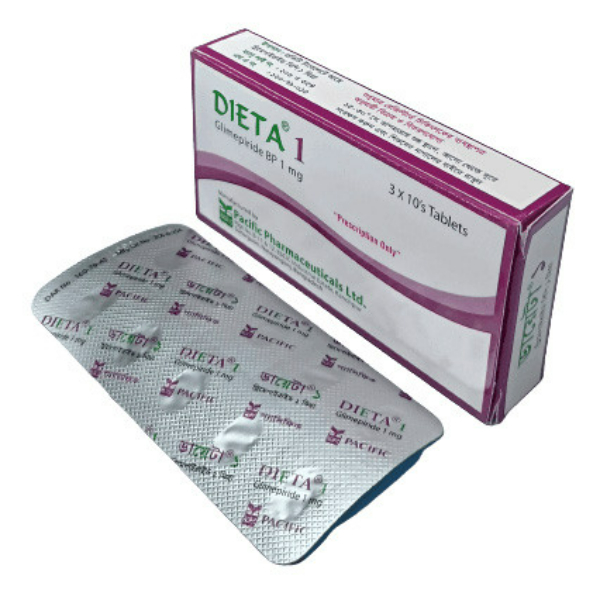
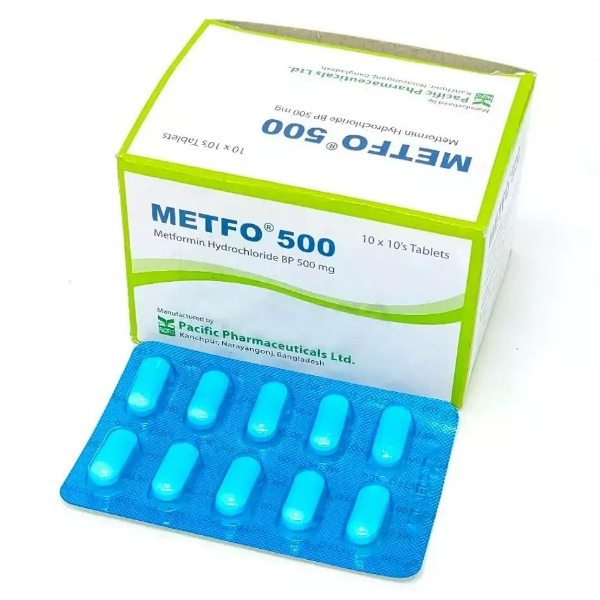

.jpg)


